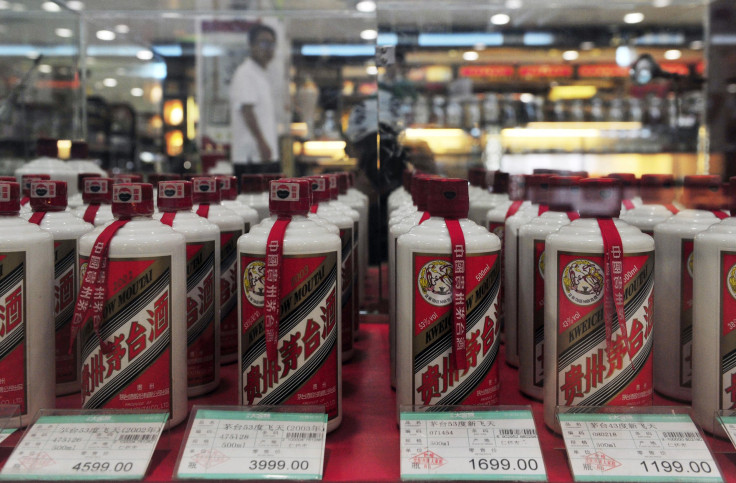China's Distilled Liquor Industry, After 10 Years Of Sustained Growth, Suffers Severe Contraction In First Quarter
China’s distilled liquor, known as “baijiu,” is experiencing the first industry-wide contraction in the past 10 years, driven by a fall in high-end liquor consumption since President Xi’s austerity measures went into effect in December 2012. In response, high-end brands are now lowering their prices and turning to the Internet to market their products.
Baijiu is a term that refers to all Chinese distilled alcoholic beverages, usually made from sorghum but can be made from other grains. It generally contains about 40 percent to 60 percent alcohol by volume. In the past 10 years, the baijiu industry has experienced enormous growth.

In 2001, baijiu brought in a total of 49.9 billion yuan ($8.14 billion), according to Jiuwenhua.cn, a Chinese liquor industry news website. In 2012, baijiu sales in China totaled 447 billion yuan, a near tenfold increase. Unfortunately, that expansion came to a screeching halt in the first quarter of 2013.
Maotai, which is traditionally considered the best baijiu, saw a 23.8 percent decrease in its first quarter 2013 sales compared to the same period last year, according to Yangtze Evening News, a regional Chinese newspaper. Last year, in the high-spending period just before Chinese New Year, a bottle of Maotai sold for over 2,000 yuan, but now the price has fallen to as low as 700 yuan in some areas.
This sharp fall in sales is in large part due to President Xi’s policies which discourage Chinese public officials from entertaining with government funding, also affecting the restaurant business.
“Entertaining with public funding is much less common now,” a salesperson for a liquor store in the city of Nanjing said, according to Yangtze. “But now that the price has fallen, some private citizens are buying high-end liquor.”
Wuliangye, another high-end brand, saw its price fall from 900 yuan per bottle to just over 600 yuan. Ironically, this price adjustment from Maotai and Wuliangye may not help their sales.
"Before, Maotai was too expensive to buy as a gift," said a shopper identified by his last name, Fang. "But now that the price has fallen, we still can't buy it as a gift, because everyone knows how much Maotai's price has declined."
He would rather buy a mid-range brand with a stable price tag, he added. Middle-grade brands, usually priced around 300 to 400 yuan, did not have to adjust their prices even in this market, and grew in popularity. Luzhou Laojiao, a mid-range brand, increased its sales by 22 percent in the first quarter compared to the same period last year.
In a suddenly bleak market, luxury baijiu producers are now turning to the Internet to help drive sales, according to Xinhua News, a state-run news agency. Many high-end brands that previously prided themselves on not being sold online are now working with Internet retailers. A few, Maotai included, have also begun selling the liquor on their own website.
Internet baijiu sales only make up 3 percent to 4 percent of the total baijiu market currently.
“In the next three to four years, Internet sales may rise to comprise 7 percent to 8 percent of the market,” said Lu Zhenwang, an e-retail analyst, according to Xinhua News.
© Copyright IBTimes 2025. All rights reserved.





















